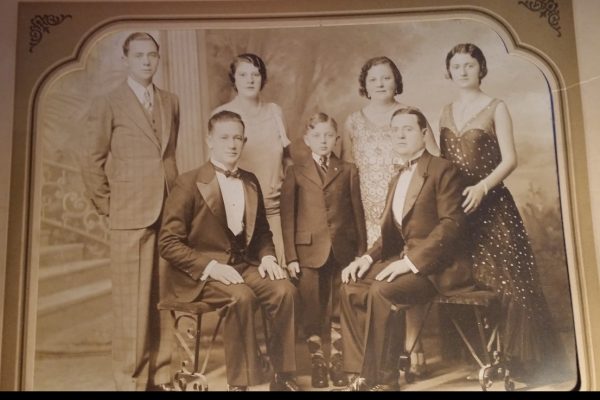About the “Yizkor for the Righteous Gentiles,” by Rani Jaeger
My mother was born in Sofia, Bulgaria, in 1943. The trains were standing by at the stations in Bulgaria’s major cities, waiting to transport Bulgaria’s 50,000 Jews to the death camps. The expulsion order had been given. An unusual coalition of clergy, intellectuals, and politicians, together with large-scale passive resistance by the Bulgarian people, at the last moment prevented Bulgarian Jewry from sharing the tragic fate of Jewish communities in neighboring countries and all over Europe.
I feel personally indebted to those people who stood there and – at great personal risk – saved my mother, her family, and the entire Bulgarian Jewry. Simply put, I feel that but for them – I would not be here today.
This year I asked my mother to tell this story in Beit Tefilah Israeli, a Tel-Aviv congregation of which I am one of the founders. As is our custom, we sought to wrap this testimony with a Jewish-Israeli ritual, including Kaddish and Yizkor. It seemed, especially in light of this personal story, to require a “Yizkor for the Righteous Gentiles.”
I looked around, made inquiries, asked, and searched and was surprised to discover there was no such Yizkor. So I sat down and, with an intense sense of purpose, I wrote one, a siddur and a Bible in front of me, and friends surrounding me.
Having written it, I now want to attempt to explain why this is, to me, a matter of principle:
1) Our duty to the Righteous Gentiles: Yizkor is a powerful call, made in an intimate Jewish language, to fulfill the obligation entrusted to the person saying the Yizkor and to those who heed him or her, to carry in their mind a conscious, living, meaningful memory. This is precisely our duty to the Righteous Gentiles.
2) Our inner duty: a “Yizkor for the Righteous Gentiles” inserts this heroic chapter into the memory of the Holocaust, as reflected in ceremonies across Israel. Ceremonies are indeed too narrow a tool to hold the spectrum of questions and meanings raised by the Holocaust. And yet their very existence testifies to our need for them, precisely because it is within them that we experience a temporary unity of time, place, and meaning. Through them we find essential meaning for ourselves and for our children in the myriad messages arising from the Holocaust at any given moment. This is why it is so important that in this capsulated message, there will be room also for those people who chose to do good, risking life and limb, within an impossibly evil reality.
Furthermore, many Holocaust Yizkor texts mention not only the victims, but also the murderers. It is appropriate in every way – morally, educationally, and culturally – to keep in our minds not only victims and murderers, but also those people of values who lent a helping hand to the persecuted.
3) The proposed text ends with a quote from Proverbs, “The righteous is an everlasting foundation.” The deeds of the Righteous Gentiles, saving people from persecution and death, are their great memorial. But beyond those individuals who were saved, those deeds present us with an opportunity for a further tikkun. Much has been said and written on the Holocaust’s cataclysmic effect in all aspects of human life – in religion, politics, philosophy, art, in the very term “culture.” Those people who stood up for the persecuted provide a window of hope – the hope that, despite everything, individuals and groups who do good can break through the walls of evil. A “Yizkor for the Righteous Gentiles” expresses the demand to remember this option and the personal obligations it entails.











